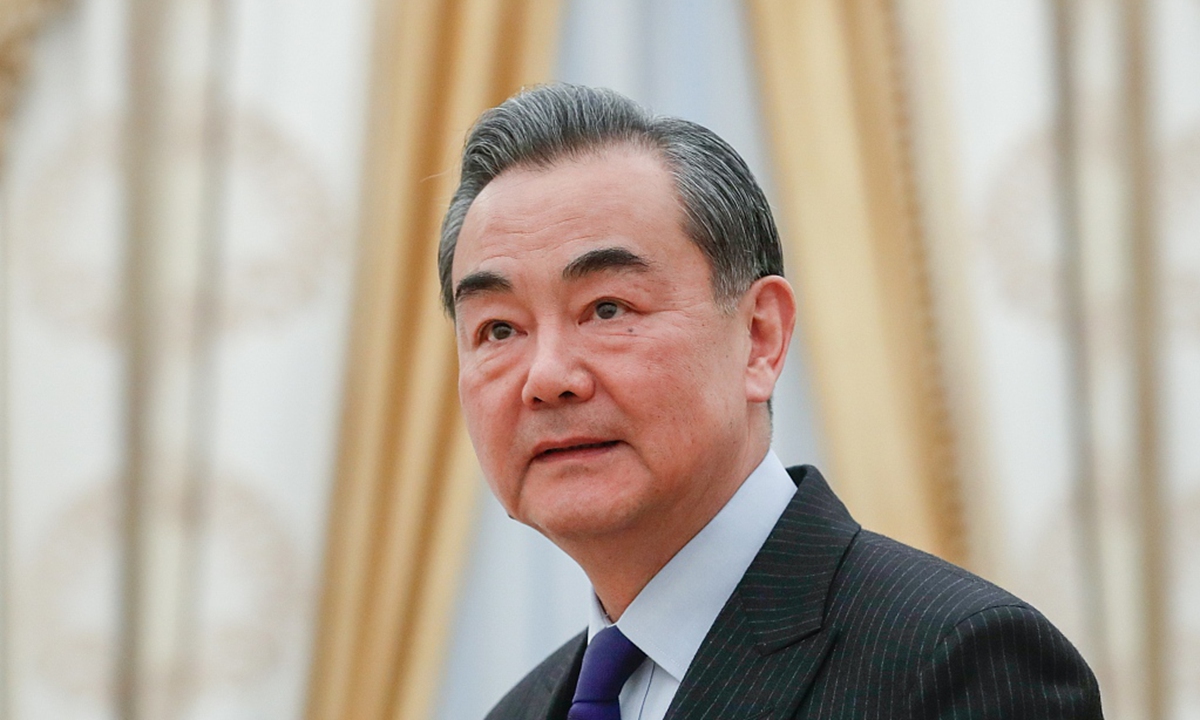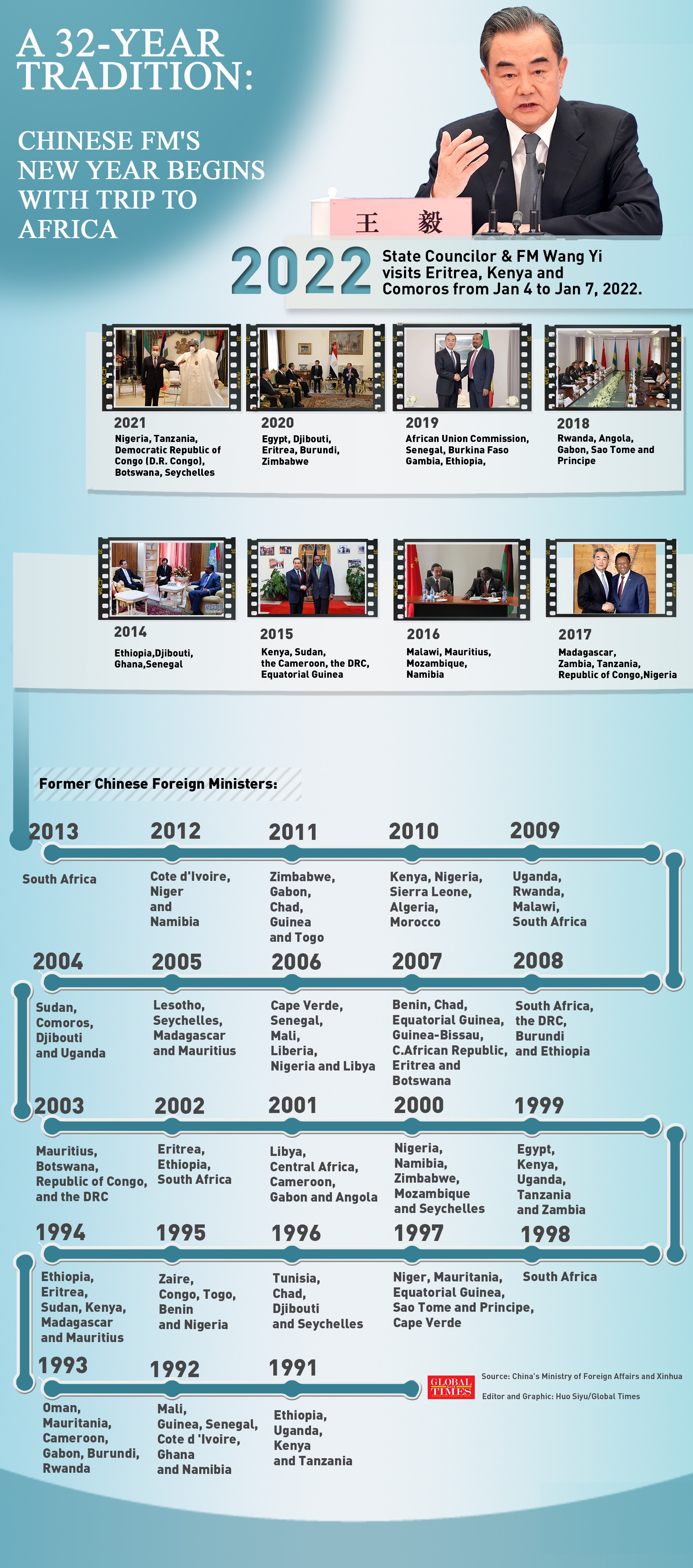
Chinese State Councilor and Foreign Minister Wang Yi. Photo: VCG
China continues its diplomatic tradition of 32 years by making Africa the first destination of its foreign minister in a new year. Analysts said that the visit will further strengthen China's ties with the continent to deepen existing cooperation under the frame of the China-proposed Belt and Road Initiative (BRI) and also eye urgent issues like fighting the COVID-19 pandemic and handling a humanitarian crisis caused by the civil war in Ethiopia.

A 32-year tradition: Chinese FM's new year begins with trip to Africa. Graphic:Huo Siyu/Global Times
According to the Chinese Foreign Ministry on Thursday, continuing the tradition of Chinese foreign ministers, State Councilor and Foreign Minister Wang Yi will visit Eritrea, Kenya and the Comoros from January 4 to 7. He will then visit the Maldives and Sri Lanka.
"The three African countries have a traditional friendship with China," said Liu Qinghai, a professor at the Institute of African Studies of Zhejiang Normal University, noting that Eritrea built its diplomatic ties with China on the first day of its independence on May 24, 1993 and the two countries have made a series of pragmatic cooperation in the past decades.
"Since November 2020, in the Tigray region of Ethiopia, which borders Eritrea, a civil war has been ongoing, and the conflict is still far from ending, which has caused a serious humanitarian crisis, and Eritrea has been affected. So Wang's visit will also contribute to peace building and conflict mediation for the region, and help the countries affected by the war solve their urgent problems," Liu told the Global Times on Tuesday.
China Global Television Network reported on Monday that the conflict between Ethiopia's army and the regional Tigray People's Liberation Front (TPLF) has left countless dead, forced millions from their homes and plunged the country to the edge of famine.
Analysts said the conflict has impacted many countries in the region, and in order to restore peace and stability, the assistance from a major power outside the region is significant.
The second leg of Wang's Africa trip is Kenya, "which is a key partner of China in East Africa and also an example of China-Africa cooperation to jointly build the Belt and Road," said Liu, noting that Kenya is also actively participating in conflict mediation in Ethiopia.
Wang Yiwei, director of the Institute of International Affairs at Renmin University of China in Beijing, told the Global Times that the China-proposed Belt and Road Initiative has benefited many African countries. In Kenya, the Mombasa-Nairobi Standard Gauge Railway is playing a key role in boosting regional interconnectivity, and the successful experiences could be expanded to more countries in the region.
Wang Yi visited Kenya in January 2020, and he said that "China regards Kenya as a trusted and sincere friend and partner, and has always viewed and developed relations between the two countries from a strategic and long-term perspective."
The Chinese foreign minister's trip to Kenya this year will focus on some urgent issues including coordination with Kenya on how to solve the crisis in Ethiopia, Liu noted.
The Comoros is an island country in the Indian Ocean and China was the first country to recognize the independence of the Comoros and build diplomatic ties with it, and the Chinese foreign minister hasn't visited the country in more than 10 years. So the visit is a natural arrangement for the two sides to deepen existing relations, and shows China's diplomatic principle of treating all countries, big or small, equally, Liu said.
Apart from boosting economic and infrastructure cooperation and assisting in peace building, the COVID-19 pandemic will also be a key topic for China-Africa cooperation, and China will implement its promise to help African countries and other developing countries worldwide fight the pandemic by offering vaccines and medical materials, as well as send medical teams to assist the ones in need, said analysts.





